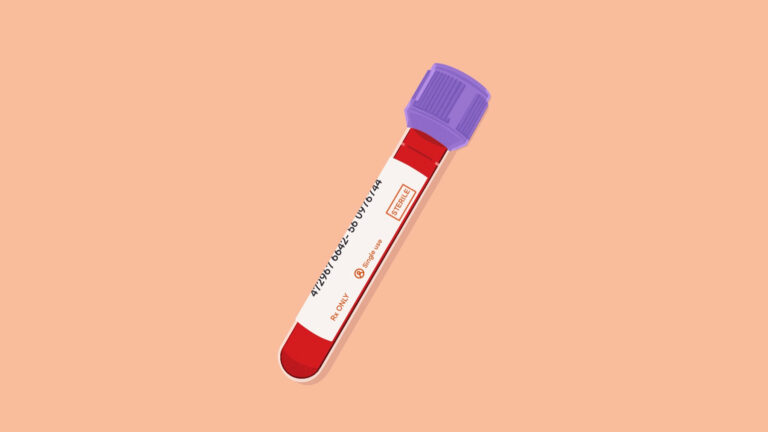Testosterone replacement is taking over the men’s health conversation… again.
Fountain of Youth
A vital hormone, testosterone affects men’s fertility, libido, body composition, and overall well-being.
Medicine x marketing. Testosterone boosters have become a multi-billion-dollar industry. Yet, many experts question the rise of unregulated supplements and widely accessible hormone prescriptions.
- The testosterone therapy market is expected to reach $3.3B by 2027.
- Between 2003–2013, testosterone use quadrupled among 18- to 45-year-old men in the US.
Clinically diagnosed, hypogonadism is a condition in which the body doesn’t produce enough testosterone.
Conventional wisdom says testosterone declines naturally with age, dropping about 1.6% per year starting in the mid-30s. But, scientists and entrepreneurs are pushing back on this notion.
Citing lifestyle factors, including smoking, poor nutrition, physical inactivity, and environmental toxins, many are quick to point out that the decline is unnatural and largely preventable.
A step further, optimizing testosterone levels has become part of the high-performance movement, taken to enhance longevity, energy, and aesthetics.
Cashing in. During the mid-2000s, pharmaceutical companies aggressively marketed testosterone treatments with TV ads touting an elixir of youth.
A successful campaign, testosterone prescriptions grew 300% in the first half of the decade, with drugmakers notching billions in sales.
A red flag, only a fraction of those men were diagnosed with hypogonadism. Worse, many others never had their hormone levels tested at all.
In 2014, the FDA warned against these treatments, resulting in thousands of lawsuits claiming drug manufacturers failed to disclose serious side effects.
Mail-Order TRT
Destigmatizing sensitive health issues from ED to hair loss, companies like hims and Roman ushered in a new era of men’s wellness.
Following their lead, telehealth startups are moving prescription testosterone treatments into the mainstream.
The latest: Maximus raised $15M in a Series A led by Founders Fund’s Keith Rabois, along with 8VC, Gaingels, and Dave Asprey of Bulletproof, among others.
The company tackles men’s hormonal and sexual health issues with a combination of prescribed medication, at-home tests, 1:1 coaching, and digital community.
More specifically, Maximus offers enclomiphene pills to naturally boost testosterone levels. Dubbed the King Protocol, it’s billed as a safer alternative to testosterone replacement therapy (TRT).
Tele-test. Following a familiar playbook, companies are repackaging TRT as a convenient solution to anti-aging and health optimization.
- Opt Health uses telehealth and wearables to deliver TRT.
- Hone Health created a membership-based online hormone clinic.
- Founded by Tony Robbins and Dr. Peter Diamandis, Lifeforce offers a variety of personalized hormone protocols.
A host of other companies offer digital visits and prescriptions, in addition to countless over-the-counter supplements claiming testosterone support.
Although, for now, in-person clinics like Ageless Men’s Health and Low-T Center dominate the TRT space, with locations across the US.
Looking Ahead
Promoting healthy hormone levels is important, as is removing barriers to care.
But, making prescription meds easily accessible via virtual visits has its drawbacks, especially when it comes to TRT.
As endocrinologist Dr. Richard Quinton told the NYT, these treatments are intended for hypogonadal patients, “not the overweight businessman whose erections aren’t as good as they used to be.”
Similarly, urologist Dr. Charles Welliver said patients under 40 rarely need testosterone therapy, but they often seek it out to improve muscularity.
A slippery slope, with a growing number of teen boys experiencing an obsessive drive for muscularity known as “bigorexia,” promoting a synthetically enhanced body image poses serious risks.
Punchline: With TRT moving into the mainstream, guys will line up to boost their levels. But, in a society obsessed with instant gratification, there’s a risk that seeking treatment for low T becomes the default. Vetting patients and advocating for healthy habits, brands will have to carefully separate want from need.
👉 Question of the Week
Where are you working out these days… at-home, gym/studio, outdoors, all the above? Let us know!
🦾 Into the Metaverse
As the future of fitness unfolds, immersive experiences are moving in.
On the Fitt Insider Podcast: FitXR co-founder & CEO Sam Cole returns to discuss the rise of VR exercise.
We also cover: group fitness in the metaverse, reimagining omnichannel workouts, and avoiding the connected fitness crash.
Listen to today’s episode here
🚲 Cycling Spectacle
A new sports league wants to shake up the cycling world.
What it is: Promising record prize money, rule changes, and equal pay for all riders, The NCL (National Cycling League) is set to launch next year.
The NCL centers around criterium, or “crit” racing, one of cycling’s fastest-growing disciplines. They’re races done on short tracks using fixed-gear bikes without breaks. Mass starts, powerful athletes, and lower barriers to entry lead to thrilling finishes.
Reimagining these races, the NCL will support mixed-gender teams, awarding points by the lap, creating high-pace and high-stakes spectator events in Miami, Denver, Atlanta, and Chicago.
The next big thing. Beyond providing more opportunity for wannabe racers, the NCL aims to create a highly marketable sports spectacle.
Riding the meteoric rise of Formula One, endurance races are courting new audiences. For instance, the Professional Triathletes Organisation (PTO) is raising funding and signed a multi-year TV deal with Warner Bros Discovery to transform triathlons.
For the NCL, engaging 60M riders in the United States and over 2B worldwide represents a massive opportunity. And, while pro cycling races like the Tour de France might not have mass appeal in the US, a gritty national crit series could attract rabid fans and inspire new riders.
Looking ahead: Seeking sanctioning from USA Cycling (which just launched its own inaugural crit series this year) and receiving investment from Founder Collective, Collab Capital, and a host of athlete-investors like Jalen Ramsey and Emmanuel Acho, the NCL is just warming up.
Share this headline
💰 Cutting Costs
CLMBR is subletting its office to conserve cash.
For context: Makers of a connected vertical climbing machine, CLMBR raised more than $18M in funding from the likes of Jay-Z, Pitbull, and Novak Djokovic.
Need to know: Scaling to keep pace with the home fitness boom, the company built out an 18K-square-foot office in Denver’s Cherry Creek neighborhood, moving in this February.
But now, as consumer habits shift amid ongoing economic uncertainty, CLMBR is headed back to its old HQ after occupying the new space for only five months.
According to founder and CEO Avrum Elmakis “everything kind of changed” as the pandemic subsided, adding:
“Markets have changed dramatically this year, certainly for everyone in our category — Peloton and others. The hypergrowth just isn’t there right now.”
Ups and downs. As we detailed in Issue No. 196, the fitness industry is trying to get back on track, with at-home and IRL brands alike confronting downturns.
What now? Trying to make sense of where the industry goes form here? We asked leading executives for their thoughts on the future of fitness. Here’s what they had to say.
📰 News & Notes
- Equinox seeks buyer for its Hudson Yards hotel.
- Safe Sweat opens privacy-focused gym in Vancouver.
- Fitt Jobs: New careers in the health & fitness industry.
- adidas CEO Kasper Rørsted to step down amid slumping sales.
- Hyperice unveils Normatec Go portable compression calf sleeves.
- Startup Q&A: Fitr CEO Leon Cassidy on enhancing remote coaching.
- USAA taps Human API for data-informed life insurance policies. [Re-read: Sweat to Save]
💰 Money Moves
- PushPress, a gym management platform, secured $11M in a Series A round led by Altos Capital.
- AI sports performance startup Uplift Labs added $5.5M in an oversubscribed seed round from the NBA’s Seth Curry and others.
More from Fitt Insider: Sportstech x Basketball - Run coaching app Perform raised $1.2M in a pre-seed round led by defy.vc.
- BRAVO SIERRA, a personal care brand developed for high-performers and the military, closed $17M in a Series B round.
- Wellness business management software WellnessLiving raised $66M in a funding round led by McCarthy Capital.
- Akili, maker of digital therapeutic video games, merged with Social Capital Suvretta Holdings, the SPAC led by Chamath Palihapitiya, and began public trading.
- Menstrual cycle-centered fitness platform 28 added $3.2M in a seed round led by Thiel Capital.
More from Fitt Insider: Femtech 2.0 - Eat Just, maker of alt meat and egg products, added $25M in funding from C2 Capital Partners.
- Love, a pharmaceutical DAO developing treatments for long COVID and other chronic diseases, raised $7.5M in a seed round.
- Motivo, an online marketplace fast-tracking licensed therapists, secured $14M in a Series A led by Cox Enterprises.
- Digital wellness platform Urban Health raised $3.4M in a seed round led by 3one4 Capital.
Today’s newsletter was brought to you by Anthony Vennare, Joe Vennare, and Ryan Deer.






